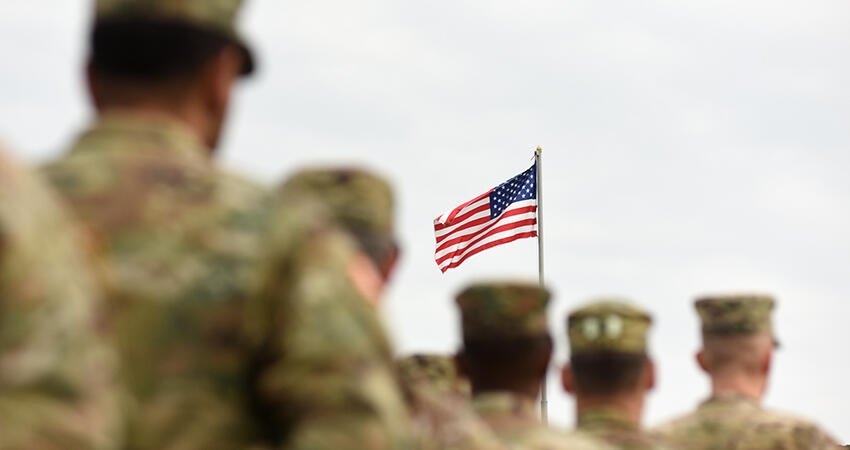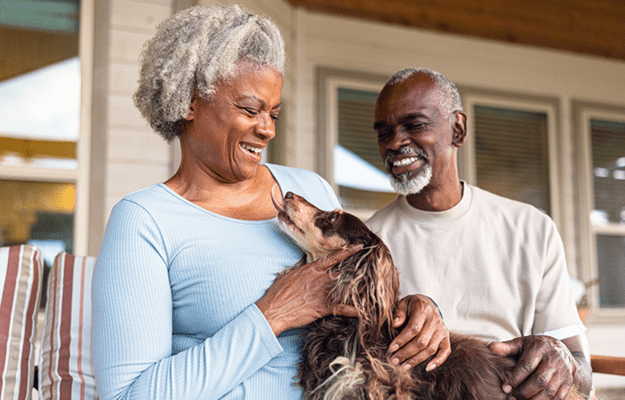
Bumble Dee/Shutterstock
Veterans Experiencing Homelessness and Housing Instability Benefit from Medical-Legal Partnerships
- Title:
-
Medical-Legal Partnerships At Veterans Affairs Medical Centers Improved Housing And Psychosocial Outcomes For Vets
- Author:
-
Jack Tsai, Margaret Middleton, Jennifer Villegas, Cindy Johnson, Randye Retkin, Alison Seidman, Scott Sherman, and Robert A. Rosenheck
- Source:
- Publication Date:
-
2017
The Department of Veterans Affairs (VA) serves millions of veterans and operates the largest integrated health care system in the United States. But historically, it hasn’t focused on civil legal problems, like housing instability and eviction, which are social determinants of health.
However, annual surveys of veterans experiencing housing instability and homelessness report that civil legal assistance is among their top unmet needs. The VA is increasingly exploring medical-legal partnerships, a service model in which lawyers are integrated into health care settings to help patients resolve civil legal issues. In this first study of medical-legal partnerships for veterans, the researchers describe the outcomes of veterans who accessed legal services at four partnership sites in Connecticut and New York from 2014 to 2016.
The researchers used an online data capture system developed by Connecticut Veterans Legal Center and LegalHealth to collect administrative data on legal problems, legal services received, and legal outcomes for 950 veterans who received medical-legal partnership services. Intake and outcome assessments were conducted with a subsample of 148 veterans every three months, using measures of housing, mental health, and well-being.
The researchers assessed housing status by asking participants how many days during the previous three months they were housed in either their own residence, transitional housing, an institution, or were experiencing homelessness. Study limitations include the lack of a comparison group, the fact that some veterans had co-occurring legal problems, some legal problems took more than a year to resolve (so were resolved outside of the study time frame), and the fact that looking only at established VA medical-legal partnerships in Connecticut and New York means outcomes might not be generalizable to newer partnerships in other geographic regions.
Key findings
- Almost half of the issues for which veterans sought medical-legal partnership services were VA benefits or housing issues. Each legal issue took an average of 5.4 hours of partnership time to resolve. This is minimal compared with the amount of time it takes for someone to find another housing arrangement or income source.
- Veterans who received medical-legal partnership services showed significant improvements in mental health within the first 3 months and continued improvement at 12 months. At 12 months, veterans whose legal issues were resolved showed increases in income and days housed.
- Veterans who received services relating to housing issues were more likely to achieve their legal goals than veterans facing criminal and military legal issues.
- Regardless of legal outcome, veterans who received more partnership services showed greater improvements in housing and symptoms of psychosis and posttraumatic stress disorder. In other words, the researchers note that veterans who received a larger “dose” of partnership services showed greater benefits.
- Medical-legal intervention at an early stage largely prevented litigation, and less than 10 percent of the issues required a court appearance or hearing attendance.
Policy implications
- Improved legal outcomes and medical outcomes in this study show that there is clinical value in expanding the delivery of legal partnerships that focus on social determinants of health.
- As the VA expands cross-sector, community-based partnerships, it should consider medical-legal partnerships within this portfolio of services.
- The housing improvements demonstrated in this analysis suggest that the VA should consider making medical-legal partnerships a key component of its efforts to prevent and end homelessness.


